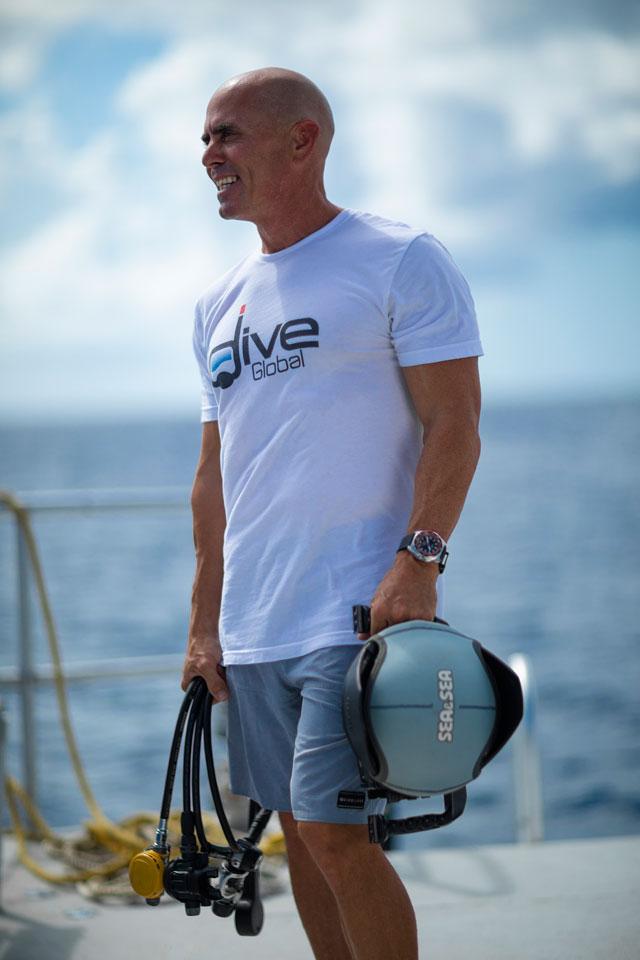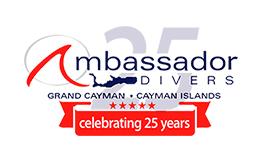Specialty Certification
Specialty Certifications

In scuba diving there is always something new to learn, like:
- how to improve core diving skills, like buoyancy control, underwater navigation, and safely making use of the benefits of diving with Enriched Air (Nitrox)
- how to deal with specific diving environments (like currents, greater depths, wrecks, diving at night),
- how to observe and identify fish and other underwater organisms in your favorite underwater environments,
- how to take part in specialized underwater activities (like Search & Recovery of lost objects, Underwater Photography, etc.)
Ambassador Divers instructors are able to teach a wide variety of specialties. Don’t see your specialty in the list below? There are so many more options – just inquire with our shop to see if one of our instructors is available to expand your knowledge and skills! Here are our top 5 favorites:
Enriched Air (Nitrox)
Do you feel like your dives are frequently limited by your no-decompression time? Maybe you sometimes feel tempted to push them farther than you should? Can’t wait during the surface interval to get back into the water?
Learning the proper procedures for diving on Enriched Air (Nitrox) will help you spend more fun time underwater!
The PADI eLearning program takes your through a thorough knowledge lesson and exam to make sure you understand the difference, benefits, and safety concerns about breathing higher oxygen concentrations.
In the practical part of the course, your instructor will teach you how to analyze the oxygen percentage in your tank fill, adjust your dive computer settings accordingly, and plan your dives with the appropriate Nitrox profile.
2 Dives and gear included.
Prerequisites: 12 years old, PADI (Junior) Open Water Diver certification
Deep Diver
Have you wondered what lies just beneath that next overhang? Would you like to visit those deep reefs and wrecks just waiting to be explored, but don’t yet know how to do so in a safe way? Are you curious about what really happens to your body, senses and mental focus at depth?
The PADI Deep Diver Specialty course holds the answers, and prepares you to safely participate in recreational scuba diving activities to a maximum depth of 130ft/40m!
During the theory part of the course you will learn proper procedures for safely planning and executing deep dives, taking into account specific risk factors, and choosing the right equipment to use for a fun and safe experience.
Over the course of 4 deep dives you will practice what you have learned in theory, challenge your mental clarity, assist in setting up the safety gear, and enjoy impressive reef structure and marine life.
All gear included.
Prerequisites: 15 years old, PADI Adventure Diver or Advanced Open Water Diver certification; if certified by another agency, please let us know your highest certification level (must be beyond Open Water Diver), and you will need a minimum of 20 logged dives including experience with deep diving (up to 100ft/30m) and underwater navigation.
Search and Recovery
Did your favorite pair of sunglasses fall overboard? Did your engagement ring slip off your finger during your safety stop? Or did a boat owner you know lose an anchor?
During the PADI Search and Recovery Specialty course you will study a variety of search patterns to choose from depending on the task at hand – size of the object you are looking for, information available regarding the area to search, underwater topography, and water conditions. You’ll brush up your compass navigation skills to efficiently follow the chosen search pattern. And you will learn how to safely use a lift bag to surface heavier objects up to 25lb/11kg. You will get to practice your skills during 4 open water dives.
All gear included.
Prerequisites: 12 years old, PADI Advanced Open Water Diver or Underwater Navigation Specialist
Night Diver
Would you like to see what your favorite reefs look like at night, and what marine life is doing during the dark hours? How about becoming confident to even plan and execute unguided night dives?
Over the course of 3 evenings, you learn about all relevant night diving procedures, including safety evaluation and setup of your night dive site, proper use of dive lights, communication and navigation; and you will find your comfort and buoyancy in the dark during 3 practice dives. Your instructor will introduce you to the changes in marine life during the night, and show you how to observe without disturbing sleeping or night active creatures.
All gear + lights included.
Prerequisites: 12 years old, PADI (Junior) Open Water Diver certification
Peak Performance Buoyancy
Have you wondered how skilled scuba divers manage to hardly move and yet effortlessly get anywhere they want in a calm way that doesn’t disturb the marine life they are observing, using very little air as they enjoy their time under water? The secret lies in excellent buoyancy control, and you can learn that too, improving the skills you acquired during your Open Water Diver Course.
During 2 practice dives your instructor will
- work with you on finding out how much weight you really need to dive comfortably,
- give you valuable hints regarding the use of your breath to really be in control of any minor depth change without needing to actively swim up or down,
- make sure you fully understand in which situations you really need to use your BCD inflator,
- figure out any need to redistribute weights to enable you to swim in a streamlined, horizontal position, and
- have you practice to hover in different positions, for sometimes you may have to get upside-down to have a look underneath a rock for creatures hiding in holes and crevices, right?
Prerequisites: 10 years old, PADI (Junior) Open Water Diver certification
Lion fish specialty
Try and imagine the most perfect, adaptive, invasive organism. An organism that can invade a host and wreak havoc on its ability to maintain balance. An organism that devours everything in its surroundings leaving behind a host with little or no defense mechanisms intact. You might think were referring to some sort of alien being or super virus. No, we’re referring to the invasive Indo Pacific Red Lionfish “ Pterois Volitans”.
Lionfish might indeed be mother natures most keenly designed invasive species. Originally from the South Pacific and Indian Ocean, the Lionfish made its first appearance in south Florida around 1985. Since then, the Lionfish has spread like wildfire all throughout the Atlantic and Caribbean primarily due to its incredibly prolific nature.
While the fish in itself is stunningly beautiful, the actions of the fish are not quite so appealing. Lionfish are voracious predators. They feast on both the ecologically and economically important, species like grunts, snapper, Nassau grouper, and cleaner shrimp. On top of this, lionfish have no known natural predators in their new environment. That was of course until man started removing the fish in an effort to slow the damage caused by the invasive juggernaut.While diving with lionfish generally poses no danger to divers, handling the fish during the culling process can be a bit tricky.
Lionfish have venom glands located alongside two groves that run the length of the spine. This venom is transferred from tissue to tissue meaning you need to be pricked by the fish to feel the effect. This can cause extreme pain as well as sweating, respiratory distress, and even paralysis. Avoiding the dorsal, anal, and pelvic fins during handling is of most importance, alive or dead.
Fortunately, lionfish are one of the most delicious fish in the sea. But wait, the news gets even better. Not only can you feel great about eating an invasive species for dinner, it’s also very good for you! Lionfish have been shown to have a higher level of Omega 3 fatty acids than other tropical fish. They are also lower in saturated fats and heavy metals such as mercury, the heavy metal commonly found in tuna.
If you would like to participate in the culling process, you’re in luck. Ambassador Divers offers an exclusive PADI lionfish spearing program. This one-day course gives student cullers the knowledge and ability to safely hunt, spear, capture and handle the invasive species.
How does it work you ask?
It’s simple. The program typically starts with a short theory/classroom session around 8:30 AM followed by two hunting dives with one of our expert lionfish instructors. This program is completed in only one day and afterwards the student is presented with a lionfish spearing certification from PADI, the Professional Association of Diving Instructors and registered with the Department of Environment to hunt in Cayman waters.
Check our latest
Dive Blogs
Introduction Stingray City Cayman is a unique and captivating destination that offers visitors the opportunity to interact with these majestic […]
Introduction Grand Cayman is a renowned diving destination that offers an unparalleled underwater experience. With its crystal-clear waters, vibrant coral […]
Introduction Grand Cayman is a paradise for scuba diving enthusiasts, adventure seekers, and nature lovers. Located in the western Caribbean […]
Experience the Luxury of Private Charters in Grand Cayman Introduction Private charters in Grand Cayman offer an unparalleled experience of […]
